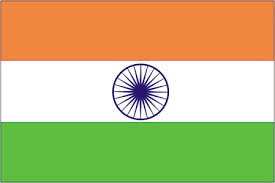Convention on Certain Conventional Weapons
Home > Convention on Certain Conventional Weapons > Statement by Commodore Nishant Kumar, Director (Military Affairs), Ministry of External Affairs, Government of India on Agenda item 5(e) Possible Options for addressing the humanitarian and international security challenges posed by emerging technologies in the area of Lethal Autonomous Weapons Systems in the context of the objectives and purposes of the Convention without prejudicing policy outcomes and taking in to account past present and future proposals at the 2019 session of GGE on LAWS held in Geneva on March 27, 2019
Statement by Commodore Nishant Kumar, Director (Military Affairs), Ministry of External Affairs, Government of India on Agenda item 5(e) Possible Options for addressing the humanitarian and international security challenges posed by emerging technologies in the area of Lethal Autonomous Weapons Systems in the context of the objectives and purposes of the Convention without prejudicing policy outcomes and taking in to account past present and future proposals at the 2019 session of GGE on LAWS held in Geneva on March 27, 2019
Mr Chairperson,
- India feels that the Convention on Certain Conventional Weapons (CCW) is the relevant forum to address the issue of the autonomous dimension of lethal weapons systems, not least because of the fine balance the Convention seeks to strike between humanitarian concerns and military necessity but also because it provides a dynamic and adaptive platform bringing together multiple stake-holders.
- Further, we believe that, CCW process will be strengthened from these discussions. Addressing this issue within the framework of the CCW will underline the fact that it is capable of responding meaningfully, to evolving new technologies applicable to armed conflict in the 21st century.
- We are heartened by the multi disciplinary participation at the GGE, of experts from capitals as well as representatives from civil society, industry associations, academia and non-governmental organisations. The broad and diverse participation, the number of Working Papers submitted by several countries, the activity on social media on this topic - all testify to the keen desire to address the issue in an effective manner by means of facts-based discussions.
- We share the view that the various options presented in the 2018 GGE Report, are not necessarily mutually exclusive, and the work carried out so far in the GGE on principles, characterization, human-machine interface, potential military applications and related emerging commonalities offers us useful building blocks for our work. Indian delegation feels that having charted correct course and covered a lot of ground, possible guiding principles being the apt example, it is opportune moment to consolidate our understanding of emerging technologies and their military applications, clarify remaining questions on this complex and multi-disciplinary subject and build further common ground on the basis of consensus.
- At this stage of deliberations, we would like to underline four main factors that need our consideration:
- Intelligibility.
- Human role and responsibility
- Not stigmatising technology and,
- Not prejudging the regulatory response.
Thank You Chair.












